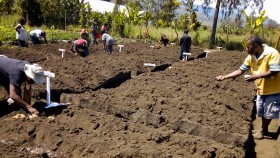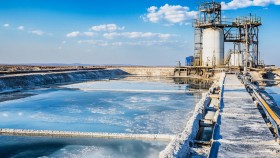ANU Below Zero: Working towards a below zero emissions target
1 February 2022
Transformational change is required to limit climate change to 1.5°C above pre-industrial levels, including rapid reductions in greenhouse gas (GHGs) emissions and the implementation of technologies that remove and sequester GHGs from the atmosphere.
In early 2021, the ANU Council committed the University to the following greenhouse gas reduction targets:
- By 2025: Net-zero emissions for direct on-campus activities, energy, business travel and waste. The focus will be on practical emissions reductions first and foremost, only using high-quality Australian-purchased carbon offsets as a back-up.
- By 2030: Below-zero emissions (for the scope outlined above) drawing down emissions on ANU land or using carbon offsets that integrate ANU research and teaching activities.
- Beyond 2030: Progressively draw down emissions accumulated earlier, starting with those accumulated over the lifetime of the Below Zero Initiative.
All other indirect emissions arising from procurement of goods and services and commuter travel: ANU will work to reduce these emissions as rapidly as possible, based on international best practices for scope 3 emissions reduction for the university sector.
In adpoting these targets, ANU seeks to take a leadership position in addressing climate change, using our influence as the national university to encourage others to take more action.
2021 has seen the ANU Below Zero Initiative focus on capacity building and strategic planning, including:
- The ANU Battery Storage and Grid Integration and Facilities & Service teams working to develop strategies for decarbonising ANU campuses.
- Extensive engagement with researchers, educators and students throughout the year to integrate Below Zero into the ANU curriculum.
- Development of recommendations around how to effectively inform travel related decision-making and reduce emissions associated with University travel, including a voluntary pilot program asking individuals to consider GHGs while making travel plans.
- Development of Draft ANU principles for carbon removal.
- Groundwork for community engagement programs around emissions reductions.

Updated: 21 February 2022/Responsible Officer: College of Science/Page Contact: https://iceds.anu.edu.au/contact
















